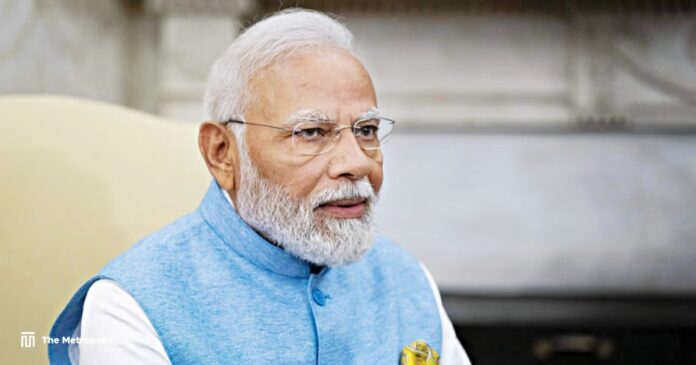Following an unexpected electoral setback that cost his Hindu-nationalist party an overwhelming majority, Indian Prime Minister Narendra Modi announced his coalition administration yesterday.
On Sunday, the 71 members of his administration took the oath of office after Modi. Of them, 11 positions—including five in the top 30 cabinet positions—went to coalition supporters who obtained them in exchange for their support.
Though important positions remain unaltered, indicating broad policy continuity, the Bharatiya Janata Party (BJP) old guard led by Modi dominates the list.
This includes the retention of BJP supporters in positions of defense, interior, transportation, finance, and foreign minister, respectively, Rajnath Singh, Amit Shah, Nitin Gadkari, Nirmala Sitharaman, and S. Jaishankar.
Health minister Jagat Prakash Nadda, the powerful president of the BJP, was appointed.
The largest ally of the BJP, Kinjarapu Rammohan Naidu of the Telugu Desam Party (TDP), was granted posts related to civil aviation.
Smaller ministries including heavy industry, food processing, and fisheries are among the other coalition posts.
Unlike his two previous administrations, which were both created after his right-wing BJP earned a majority, his third-term roster does not include any Muslim lawmakers.
Minorities are concerned as Modi has developed an aggressive image as a defender of the nation’s dominant Hindu faith during his ten years as prime minister.



